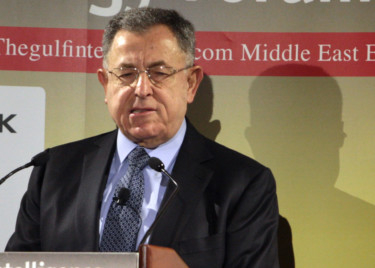
Seoul, Korea: Stung by last week’s accusation made by Progressive Socialist Party (PSP) leader Walid Junblatt that he was behind the illegal internet network scandal, former Prime Minister Fouad Siniora surged to the media forefront on Sunday, when he lambasted Hezbollah and the latter’s ties with Iran to have allegedly tarnished Lebanese relations with most Arab countries.
According to the pan-Arab daily Al Sharq Al Awsat, the leader of the Future parliamentary bloc blamed the Shiite militia for hurting Lebanon’s interests, and bidding Iran’s welfare instead. Siniora claimed that Hezbollah transformed the country into a “body without a head,” and told the newspaper that the ongoing vacuum in the presidency “has created a huge void that allowed Iranian ties with Hezbollah to tarnish Beirut’s relations with Arab countries, especially Saudi Arabia.”
As a way to remedy this void, Siniora called on Tehran to “distance itself from interfering in the internal affairs of Arab countries”, although it was not clear why Iran would care to listen or, in the best of circumstances, cease and desist what seems to be a rather successful policy.
Iran’s “systematic” intervention in Lebanon through its favourite militia significantly weakened existing institutions, the former premier insisted, which created a “major political setback” that naturally affected the country’s established ties with leading Arab countries. This may well be the case, but Siniora did not elaborate what his March 14 alliance was doing to counter Hezbollah and its March 8 group at the local level.
Of course, while Hezbollah deputies cast blank votes during the sole electoral gathering on April 23, 2014, to elect a successor to President Michel Suleiman, and royally boycotted all 38 successive calls to attend new session, thereby ensuring that no quorum could be reached, March 14 deputies were in a national unity government with Hezbollah members. In other words, while Siniora lamented Lebanon’s ties with Gulf Cooperation Council States, he and his allies continued their businesses with Hezbollah on a routine basis.
This irony matched a similar paradox in what passed for Lebanese politics as the militia’s declared candidate, Michel Aoun, was guaranteed victory, especially now that the Lebanese Forces’ Samir Geagea withdrew from the race and backed Aoun. It remained a mystery why Hezbollah refused to participate in the presidential elections save for the widely believed notion that it no longer wishes to continue within the existing political set-up. Equally puzzling was the March 14 selection of another March 8 contender, Marada Party leader Suleiman Franjieh, as its presidential candidate.
For what it was worth, the latest Siniora declarations shrouded Junblatt’s provocative assertions made just a few days ago that the former prime minister was behind the illegal internet network scandal that highlighted mega Shenanigans at the highest levels of government and its elite acolytes. The issue was noticeably forgotten for fear, perhaps, of upsetting the proverbial apple cart among the country’s political caste.











